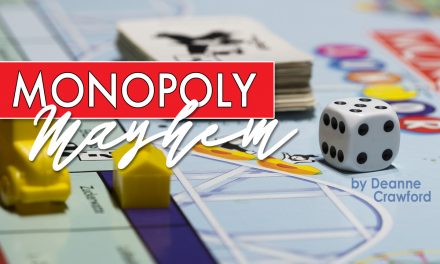In the great big world of homeschooling high school how does a parent/student team choose the non-compulsory, yet essential topics for the credits needed for graduation? The core/ compulsory topics of Math, Science, English, Fine Arts, and Physical Education are somewhat straight forward to designate. These compulsory requirements can vary by state, so first, know what your state requires. After those are considered and planned for, you may want to check into the possible colleges your student may want to attend for their acceptance requirements.
Foreign language: Some colleges may require this subject for admission. If your student’s preferred college does require foreign language, you’ll need to add it to your high school plan. Another thing to consider, however, is that many colleges require at least 2 credits of foreign language to obtain a degree. These can sometimes be fulfilled using the high school Foreign Language credits depending on the course materials completed. It may be a good idea to check with the college(s) your student potentially may attend to see what kind of Foreign Language programs they will consider credit worthy. Doing so potentially saves your student the cost of taking foreign language. If your student wishes to be multilingual, they should complete two years of one language before moving onto another, as the cohesiveness develops language mastery–something some colleges look for.
After checking these courses off your planning list, where do you find topics for other electives?
Personal Interest Human nature is to move toward things we enjoy. One of the beauties of home education is the ability to be flexible and cultivate a love of learning. This sometimes seems easier when our students are younger and do not yet have the weight of growing up and potential college prep to consider. However, elective courses is an opportunity for learning something your student finds interesting and fun. Course requirements can vary depending on the nature of the course. It is advisable to log at least 120 hours for a full credit course and 60+ hours for a half credit. Keeping that in mind, you can consider options for the perfect electives for your student! Of course, your student should play a role in the nomination of topics to be considered.
Lifestyle-Based Sometimes topics for electives can stem from family virtues or lifestyle. For example, you may choose to require Bible or religious studies. Try turning a family way of life such as farming, construction, computer coding, or culinary skills into a hands-on training for credit. Depending on the subject or skill, you may want to include some type of topic-focused instructional material like reading material, videos, or an actual class or lesson (whether online or in person). Rainbow Resource offers a plethora of materials that can be used to either piece together elective courses or open and go. There are texts on Agriculture Mechanics, Food Science, and Auto Mechanics, to name a few. These titles introduce concepts in interesting ways with experiments or activity-based learning.
Hobby-Based If your student has a hobby such as playing an instrument, painting, drawing, or the like, assemble a plan to transform the time engaged into transcript credit. Make sure whether a fine arts credit is required. Then…if your student is very passionate about their hobby, they should have no problem spending enough time to be transformed into either a full or half credit using the above indicated criteria for logging hours. Remember that field trips, concerts, and rehearsal time all can be counted.
Trade-Based Some teenagers may choose to pursue a trade or plan to be in business for themselves after graduation. Choosing an elective or two that would lay building blocks for such an endeavor could help pave the way and pay off in the long run. The “Micro Business for Teens” set, “Small Business Entrepreneurship” or “Practical Accounting Fundamentals” could provide a valuable start. Rainbow also carries a set called “Stock Market Companion-Stock Investing Course” Hmm… That piques my interest too!
Life skills or family and consumer science are great electives for any student. Everyone needs to be able to do their own laundry, cook a meal, care for home and auto, communicate well, and manage money, to name a few skills. You can use curriculum or create your own requirements in your school. Have students log tasks as they learn, such as when they wash their laundry, what cycle the machine was set on, what additives they used, etc. Teach proper nutrition; then appoint a meal schedule where they are responsible for planning, purchasing, preparing, and presenting meals on a weekly or biweekly basis for a semester. Have them take a picture of the finished meal before anyone digs in. Using a point system, have each person who ate rate the meal based on chosen criteria such as taste, temperature, presentation, and if they would like it again. Your student can keep all of this in a binder for a final grade and record of how well they completed the tasks. Teach them how to change the furnace filter, fix a leaky drainpipe, grow something edible, etc. There are many different topics you can cover in a life skills class.
There are so many great ways to meet the electives requirements for high school graduation. If it is too hard to decide, perhaps you and your student can take a poll to “elect the electives” for their education. ~ Judy





